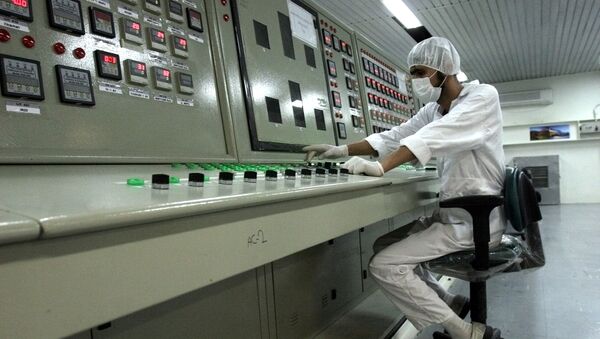"It is important that we are properly prepared for any circumstances in such a way that if higher management will take a decision on nuclear activity, in particular, the acceleration of [uranium enrichment], we will be ready," Kamalvandi told the IRIB news agency.
Kamalvandi stressed that if the United States decided to restore sanctions against Tehran, the country would be in violation of the JCPOA.
According to the official, in the reports it submitted to the Iranian leadership, the Atomic Energy Organization of Iran said it was cable of accelerating the country's nuclear activity "by several times," particularly in the area of uranium enrichment.
READ MORE: Saudi Arabia Begins Exploration of Uranium — Reports
Iranian Foreign Minister Mohammad Javad Zarif, who met Russian Foreign Minister Sergei Lavrov earlier this day, said that Tehran regretted that one of the parties to the Iran nuclear deal didn't fulfill its obligations under the agreement but made attempts to hamper its implementation instead.
"The IAEA has repeatedly stressed and reaffirmed Iran's commitment to the implementation of the Joint Comprehensive Plan of Action (JCPOA) but, unfortunately, one of the parties to the agreement has not yet fully fulfilled its obligations, while pursuing a destructive policy instead," Zarif said at a meeting Lavrov in Moscow.
"We and other JCPOA members need to work closely together to ensure that this agreement will continue to be implemented," the Iranian Foreign Minister stressed.
During his election campaign, Trump slammed the JCPOA as "the worst deal ever negotiated." Since entering office in January, he had more than once criticized Iran for alleged non-compliance with the agreement. On October 13, the US president announced the US administration's decision not to certify Iran’s compliance with the JCPOA.
In July 2015, Iran and the P5+1 group of nations — the United States, Russia, China, France and the United Kingdom plus Germany — signed the JCPOA. The agreement stipulates a gradual lifting of sanctions imposed on Iran in exchange for Tehran maintaining peaceful nature of its nuclear program.



